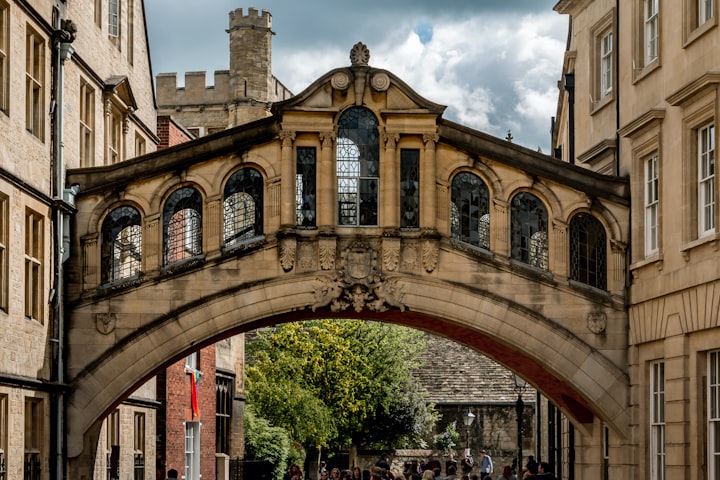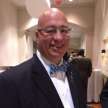The Strange Tale of Dr. William Chester Minor: Murderer and Scholar
Murder, Madness, and The Oxford English Dictionary

History often gives us stories that surprise and inspire us. Dr. William Chester Minor’s life is one such story. He went from a life of luxury to living in an asylum. Yet, he left behind a legacy that still touches us today. His life story is a reminder of how brilliance can emerge from struggle.
Dr. Minor’s story is both tragic and inspiring. He was born into a wealthy family, earned a medical degree from Yale University, and became a U.S. Army surgeon. But then, he faced severe mental health challenges. Still, he made lasting contributions to English lexicography. How did he manage to leave such a mark despite his struggles?
Dr. Minor’s life teaches us about the strength of the human spirit. His story is woven into history, showing how personal challenges still lead to outstanding achievements. His life encourages us to look beyond our struggles.
The Early Life of Dr. William C. Minor: Aristocracy and Loss
Dr. Minor’s early life started in New England’s upper class but was challenging. Born on June 22, 1834, in Connecticut, he was set for a life of learning and fine living. His birth into a notable wealthy family meant he would have every advantage in life, though his journey was anything but smooth.
Birth and Family Background
His father, Eastman Minor, was a respected missionary, and his mother, Lucy, died of tuberculosis. This left young William in a world filled with both privilege and sorrow. His family was wealthy, but the early loss of his mother created a deep sadness. This sadness would later influence his life’s work and ideas.
Childhood Tragedy and Education at Yale
After his mother died, William was taken in by his uncle in New Haven, Connecticut, and this change played a significant role in his education and future. He attended Russell Military Academy and then went on to Yale University. At Yale, he studied medicine and anatomy with great passion. It was at Yale that his journey truly began to take shape.
Military Service: The Surgeon at the Battlefield
Dr. Minor received a commission in the U.S. Army as a Medical Corps Surgeon. As a surgeon, he participated in some of the Civil War’s major battles, including the Battle of The Wilderness. He was said to have shown bravery and skill in battle. Amidst the chaos, he saved many lives with his skills as a surgeon.
Post-War Achievements and Mental Health Struggles
Dr. Minor’s life changed after the war. He continued his medical work with significant achievements. Yet, the war’s impact and what he experienced haunted his life, affecting his mental health. Despite his issues, Dr. Minor’s legacy as a skilled surgeon remains impactful.
Move to England
After serving in the Civil War, Dr. Minor moved to England to reset his life. There, despite mental health issues, he dedicated himself to literature and painting. His situation was challenging, but it showed two sides of him. He was a man fighting his demons and a scholar and artist.
From U.S. Civil War Veteran to Murder
Dr. Minor started his Professional life as a celebrated U.S. Army surgeon. But his life in England turned dark sometime after his arrival. In Lamberth, London, he shot and killed a man in a tragic murder. This horrifying act shocked Victorian society.
Dr. Minor was haunted by delusions, believing the man he killed was out to harm him. His mental health was fading fast. This led to the unfortunate death of an innocent man who became entangled in Dr. Minor’s troubled mind.
The Tragic Event in Lamberth
Dr. Minor’s encounter in Lamberth ended in an awful tragedy for both the victim and himself. He had become deeply paranoid, convinced he needed to defend himself. He thought attackers from the Fenian Brotherhood, an Irish group, were after him.
This belief led to him causing the death of an innocent man. Dr. Minor’s delusions drove him to violence. His trial revealed the depth of his mental health issues, and the jury found him insane.
Delusions and the Fenian Brotherhood Conspiracy
The Fenian Brotherhood conspiracy was all in Dr. Minor’s head. He believed they were targeting him, causing much of his paranoia. This was likely due to his mental health deteriorating, possibly worsened and triggered by what he saw in the military.
Experts think he might have had schizophrenia. His delusions greatly influenced his actions, causing death on that tragic night in Lamberth.
Life in Broadmoor Asylum and Creative Pursuits
In Broadmoor Asylum, Dr. Minor’s life changed dramatically. This new environment, though strict, was a place of escape. Here, he rediscovered his joy in painting watercolors. This hobby helped soothe his troubled mind. His art showed his strength and gave him a vital sense of purpose.
Broadmoor Asylum was also where Dr. Minor made significant academic efforts. Despite his struggles, he stayed committed to learning. He helped create the early Oxford English Dictionary. Dr. Minor’s time at the asylum shows how the human spirit can create beauty from hardship.
Contributions to the Oxford English Dictionary
Dr. Minor faced many personal challenges, yet his academic work was excellent. While living in the Broadmoor Asylum, he began an impressive project that would leave a lasting mark on the world of words.
His contributions to the Oxford English Dictionary (OED) created a powerful legacy. Working closely with Dr. James Murray of Oxford University, they made history together. This partnership went beyond the restrictions of his situation.
Dr. Minor’s work on the OED was guided by detail and method. He had a strong drive for accuracy. He sorted through English words, pinpointing their origins and meanings.
His detailed submissions strengthened the dictionary’s quality. Dr. Minor thus set a high bar for all future lexicographers.
The Correspondence with James Murray
Dr. Minor’s letters to James Murray were essential, too. James Murray led the dictionary project, and their letters connected Dr. Minor’s secluded life to the academic community.
Through their messages, they shared knowledge and stories. This relationship was critical to the dictionary’s success, showcasing teamwork’s power from the very start.
A Philologist’s Encounter: Meeting with James Murray
The meeting between Dr. Minor and Dr. Murray highlights literary history. It’s a story beyond just two people meeting and forming a friendship. It became a crucial moment in the history of the English language.
The connection between Dr. Minor and Dr. Murray started with letters used to create the Oxford English Dictionary. When they met, Murray finally learned where Minor lived and that he was an asylum patient. He was surprised. He thought Minor was a scholar like him. This discovery brought them closer and grew their respect for each other.
Their work together shows how mental health and brilliance can intersect. It was a partnership that changed how we view contributions to knowledge. This story tells us that help can come from the most unexpected places. It reminds us of the value of every person’s story.
Minor’s Declining Mental Health
In his later years, Dr. Minor’s mind worsened. He helped create essential works in lexicography. Yet, his thoughts started to come apart.
His mental health issues cast a long shadow on his legacy.
Paranoid Schizophrenia and its Toll
Dr. Minor was diagnosed with paranoid schizophrenia. This illness did more than distract him. It made his view of reality warped and wrong.
His schizophrenia made him believe things that weren’t true. Delusions and paranoia trapped him in a world his sick mind made.
The Impact of Dr. Minor on English Lexicography
Dr. William Chester Minor’s work on the Oxford English Dictionary is a captivating story. While in Broadmoor Asylum, his commitment was legendary. It shows how one person’s efforts can shape language development.
Dr. Minor’s work helped connect deep knowledge with English’s rich vocabulary. His efforts are a unique blend of scholarly success and overcoming personal struggles. He worked closely with Dr. James Murray, the dictionary’s main editor. This partnership was crucial for the OED’s growth.
Dr. Minor’s work greatly impacted English vocabulary by defining thousands of words. His extensive research made the dictionary a treasure of English language heritage. His legacy highlights the strength of the human spirit. It shows how much one individual can influence history and culture.
The Evolution and Relevance of the OED
The Oxford English Dictionary (OED) remains essential in the digital age because it keeps up with the English language. The OED records the language’s history and current use, making it more than a historical record. It becomes a resource that grows with the language.
The OED updates regularly, adding new words from ancient texts and today’s internet chats. Its careful selection process gives us a detailed picture of English. Users and scholars get a resource filled with accurate and authoritative words.
The Legacy Left by Dr. Minor
Exploring hidden aspects of history uncovers fantastic tales. These stories feature people who, despite struggles, greatly influenced our world. Dr. William Chester Minor’s tale is one such story. His work greatly impacted linguistics and literature.
Unforeseen Influence on the English Language
Dr. Minor’s journey had a significant impact on the English language. His hard work was crucial for the Oxford English Dictionary (OED). Despite facing personal challenges, his brilliant mind contributed significantly to dictionaries. His hard work gathering words helps keep his spirit alive in the OED.
Our Conclusion
The tale of Dr. William Chester Minor is both complex and motivational. It shows us how the human spirit can overcome hardship. His story reaches those who see the profound effect just one person can have on studying the English language.
Dr. Minor battled many personal and mental health challenges. Yet, he helped create the Oxford English Dictionary, which is critical to English studies.
His life is a mix of creativity, illness, and brilliance, showing the complex nature of great minds. Recognizing Dr. Minor is about more than just his lexicography skills. It’s about seeing the efforts of people throughout history.
His detailed work on the OED is a lasting tribute. It forever changed how we see words and their roots.
Considering Dr. Minor’s impact, we see what it means to turn personal struggles into widespread benefits. His work reached beyond his limitations. It affects anyone using the OED.
Scholars and language lovers honor him when they explore the OED. His life shows that great things can come from significant challenges.
About the Creator
Matthew Jack
My 30-year law enforcement career fuels my interest in true crime writing. My writing extends my investigative mindset, offers comprehensive case overviews, and invites you, my readers, to engage in pursuing truth and resolution.






Comments
There are no comments for this story
Be the first to respond and start the conversation.